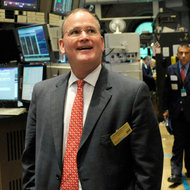HONG KONG — Asia’s rapid economic progress risks being undermined by the rising number of floods, landslides and other natural disasters that hit the region, according to a new report by the Asian Development Bank, published on Tuesday.
Coming just two weeks after a massive storm battered the east coast of the United States, wreaking havoc in New York and surrounding areas, the development bank’s study provided a stark reminder that Asia and its many densely populated and rapidly expanding coastal cities are particularly vulnerable to weather-related disasters such as storms and floods.
“The region has borne the brunt of the physical and economic damage of the sharp rise in natural disasters since the 1980s,” the bank wrote. “Its people are four times more likely to be affected by natural disaster than in Africa and 25 times more than in Europe or North America.”
Disaster-related losses could top $19 billion a year, and the increasing frequency and severity of natural disasters can “slash economic growth and development,” the report commented.
Weeks of flooding in low-lying areas of Thailand, for example, inundated homes and factories, paralyzed much the country’s manufacturing sector and caused many billions of dollars in damages late last year.
Similarly, floods and landslides cost the China some $18 billion in 2010 alone, the bank said.
“We have thought for too long that natural disasters come and go, that they are just an interruption to development, and that they can be dealt with after they strike,” commented Vinod Thomas, the director general of the Independent Evaluation department, which evaluates the policies and strategies of the A.D.B and compiled the report.
In developing Asia, rapid and often chaotic urbanization, poorly managed rural land use and deforestation exacerbate the impact of storms and rising sea levels.
In a bid to dull the impact of future disasters, more emphasis should be placed on disaster prevention, rather than post-disaster recovery, the study recommended. By some measures, the report said, “one dollar invested today in reducing disaster risk saves at least four dollars in future relief and rehabilitation costs.”
Article source: http://www.nytimes.com/2012/11/14/business/global/14iht-report14.html?partner=rss&emc=rss

